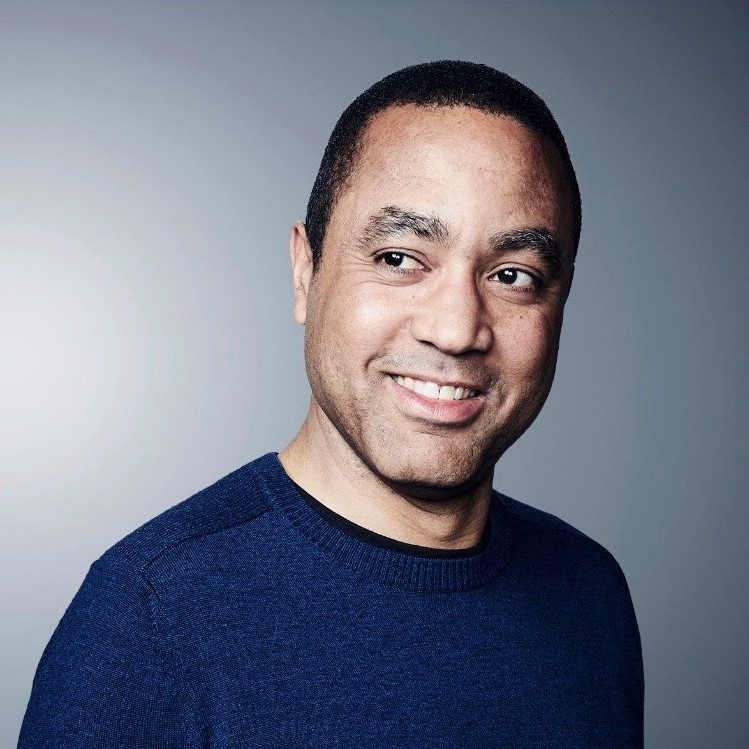In a virtual Writers & Readers event hosted by Cleveland Public Library on June 12, author and linguist John McWhorter offered potential solutions to improve the lives and futures of Black Americans—while also turning a critical eye to some aspects of the anti-racist rhetoric that has proliferated in the last year.
In a conversation moderated by Mordecai Cargill, cofounder and creative director of ThirdSpace Action Lab, McWhorter stressed that while systemic racism undoubtedly exists, he questions whether subscribing to current anti-racism philosophies is a productive solution. He also argued against the claims that he holds conservative ideals, as well as against the larger assumption that Black people must be radical to be liberal.
“I’m called conservative because I don’t think teaching white people about their racism is the way forward,” he said. “I don’t see how people will change white minds, whether they are ‘fragile’ or not. Racism is not the obstacle we’re told it is … Today, that’s considered a conservative thought. But I’m a ‘conservative’ that’s never voted Republican, is thoroughly pro-choice, argues that the war on drugs should end, and has no interest in trickle-down economics,” he added. “If I’m a conservative, then I think our definitions have gotten sloppy.”
As a professor of linguistics and comparative literature at Columbia University, McWhorter has made the implications of words a major part of his life’s work. The author of more than a dozen books, his most recent title is Nine Nasty Words: English in the Gutter: Then and Now. The Library provided free copies of Nine Nasty Words to Writers & Readers attendees upon request.
“I am not a conservative,” McWhorter repeated. “I am a cranky liberal. Not a leftist, but a liberal.”
Solutions for a Brighter Future
During his conversation with Cargill, McWhorter outlined several elements of American society “that make it hard for Black people to live.” First and foremost is the war on drugs, a campaign he stressed was formulated in part based on racism. According to McWhorter, ending the war on drugs would also help “pull the cops away” from Black communities.
“If the war on drugs ended today,” he asserted, “Black America would be a different place next year.”
Additionally, he advocated for encouraging vocational education instead of assuming that a four-year college degree is the best path for everyone. After sharing how he unexpectedly came to hire a Black-owned, father-and-son company when he needed an electrician, McWhorter explained that the trades can offer comfortable futures for young people. Deemphasizing the need to for a college degree as the default educational requirement could only assist in this effort.
“You can make a thoroughly decent living without having to pretend for four years that you like Shakespeare,” he said.
McWhorter also expressed his desire to abolish the perception that white people are a “menace” to Black people, or that Black people should define themselves in relation to the white majority. When asked about the proposals to ban critical race theory in some Southern states, for example, he acknowledged that the rationale for such bans often exaggerates the meaning of critical race theory and even denies the existence of racism. With that said, however, McWhorter also expressed concerns surrounding what and how children are taught.
“Teaching seven-year-olds that white people are the oppressor and that Black people are in their thrall? That’s the indoctrination of a certain kind of leftist white person,” he said. “To me, that’s primitive. But I haven’t written about [critical race theory bans] yet … until more developments happen. Sometimes things are complex, and if they’re too complex, I wait.”
Pushing Back Against Pessimism
“I want Blackness to be about what we are and what we like instead of what white people hand out.”
John McWhorter
Finally, McWhorter credited social media with changing the way Americans view and discuss race—and not for the better. He posited that since social media’s explosive growth from 2009 onward, the method of discourse has been forever changed.
“Social media helped entrench an idea that racism is more of an obstacle than it is. We’re now obsessed with racism as this miasma in the air, and I think that’s defeatist,” he said. “We are mired in a pessimism now that I don’t think we would be if it weren’t for the artificiality of social media.”
McWhorter also stressed during the discussion that he didn’t want Black identity to be defined in relation to the white majority. Instead, he hoped to see more confidence and self-assuredness.
“I want Blackness to be about what we are and what we like instead of what white people hand out,” he said.
Cleveland Public Library’s Writers & Readers series aims to bring together authors, academics, intellectuals, and public figures to offer diverse perspectives on current events and the stories that shape our lives. McWhorter was originally slated to appear in the series in conversation with writer and podcast host Coleman Hughes; due to unforeseen circumstances, Hughes was unable to attend the event.
